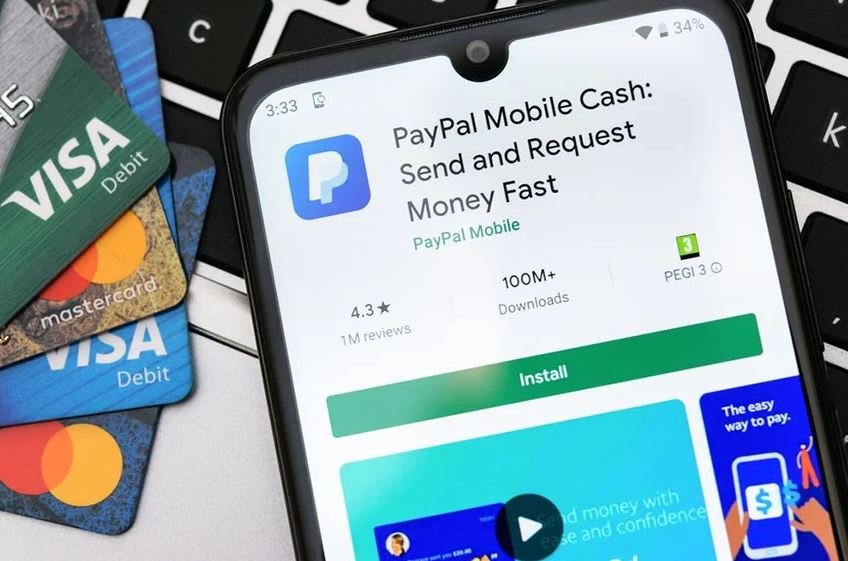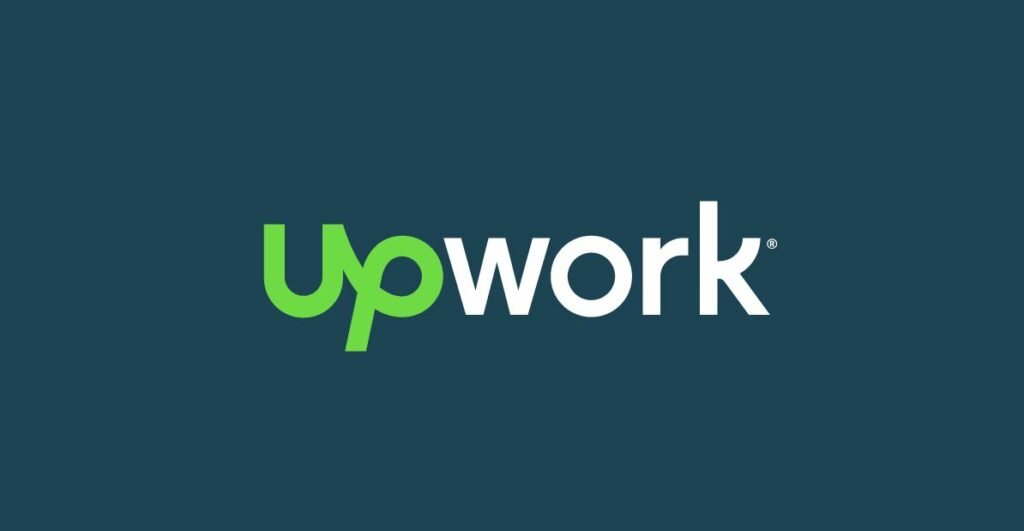Suppose you deal with freelance projects regularly. In that case, you may have already come across this question: What is the difference between being a freelancer and a self-employed individual? Both are legal ways to earn money online.
Being self-employed or a freelance worker is not just about making money or being your boss. There’s a small boundary that differentiates these two lines of work.
What does it mean to be a Freelancer or be Self-employed? This post will give you an in-depth comparison between freelancing and self-employment. By the end of this guide, you should know all there is to about freelancing and
Before we get down to the differences between freelancing and being self-employed, you must understand what these terms mean and how to use them in defining yourself or what you do.
Who Is A Freelancer?

A freelancer sometimes referred to as an independent contractor or contingent worker, is a person who is self-employed and is not necessarily committed to a particular employer long-term.
Although a freelancer can be defined in several ways, it can easily be described as an independent undertaking that is the most integral component of this type of occupation.
A freelancer is a person who works independently, with no direct or fixed employment relationship with the employer, who can also be employed as a temporary or permanent employee. Freelance workers typically work under contract with multiple clients or companies.
This means “a self-employed person and is not required to work regularly for a single company.” A freelancer works with multiple clients simultaneously while being contracted out on a project-by-project basis rather than being employed full-time by one company.
Freelancers can be found in almost every industry and often work remotely. They can be paid by the hour, day, or project. Many freelancers enjoy this work because it gives them more freedom than traditional employment.
What Does it Mean to be Self-Employed?
The term “self-employed” is a broad one that encompasses a wide range of professions. For example, many people who work from home are considered self-employed, even if they don’t have an incorporated business or LLC.
The self-employed are people who own a business or are running their own business. The self-employed have the freedom to set their hours and goals, but this comes at the expense of less job security and benefits. They also have to pay for their training and education costs.
Being self-employed means that you are your boss. You answer to no one but yourself, set your hours, and work from wherever you wish. You get to work on things that interest you, such as social media marketing or web design, and there is no limit to what you can earn.
Being self-employed can be both an exciting and scary prospect. There are many advantages to being your boss but also some disadvantages that need to be considered before taking the plunge into self-employment.
You’re responsible for your taxes. You’ll need to pay income tax on all the money you earn from your business — including any profits from capital gains — and payroll taxes if you have employees.
Six Differences Between Freelance And Self-employed

Freelance and self-employed are terms that are often used interchangeably, but they’re not the same. Freelancers are self-employed, but not all self-employed workers fit the freelance definition.
Here are six critical differences between freelance and self-employed:
1. Self-employed Own Businesses, While Freelancers Don’t
You may wonder what the difference between a freelancer and an independent contractor is. In short, a freelancer is hired by an employer (or client) to work on specific tasks for a set period. They don’t own their own business but instead work for others.
On the other hand, self-employed individuals own their businesses; they have complete control over all aspects of their business operations. They do not need to answer to anyone but themselves.
2. Self-employed Hire Employees And Pay Taxes, While Freelancers Don’t
You can hire employees, pay taxes, and legally need a license to operate legally in a state as a self-employed individual. Freelancers don’t have employees, claims, or pay taxes [varies between countries].
Self-employed individuals are responsible for paying their employment taxes (social security, Medicare). Freelancers don’t have to worry about these expenses because they’re not considered an employer.
Self-employed people can deduct business expenses from their income when filing their taxes; freelancers can’t do this because it’s not considered “work” in the eyes of the IRS.
3. Self-employed Work Full Time, While Freelancer May Still Have A Day Job
Self-employed individuals generally operate their full business time and make money off their business, while freelancers’ work may not be full-time and are paid per project.
For freelancers, you’ll need to find a client who needs you to do something specific (on a particular date) and then do it. You get paid for that specific task when you complete it. Self-employed people can choose when they want to work and how much they want to make in the process, but they have higher overhead costs than freelancers because self-employment sometimes t requires them to pay for office space and equipment.
4. Self-employed Take An Owner’s Salary, While Freelancers Get Paid Based On Predetermined Rates
Self-employed individuals have to pay themselves a salary. This is called the owner’s draw, deducting from their business income before that income is taxed. For example, if you made $100,000 in sales during the year and your expenses were $50,000, then $50,000 would be taken out of your bank account as owner’s draws before paying taxes on anything else.
Freelancers are often paid a flat fee for their work, but it can also be determined by the number of hours they work or by the value of the final product.
5. Freelancers Have Clients. Self-Employed People Have Customers
A client is someone who pays you to do work for them. A customer is someone who buys your products or services. Clients are more likely to be individual people, while customers are more likely to be businesses. Clients tend to have longer-term relationships with freelancers than with self-employed people.
6. Freelancers Mostly Work Alone While Self-Employed People May Work With Teams
Freelancers usually work alone, while self-employed people may work with teams. A freelancer can work anywhere they want if they have an Internet connection. On the other hand, self-employed people need specific equipment and tools to do their work. They may also have to manage a team of employees. This means that they need to be able to delegate work and manage people.
Does Freelancing Count As Employment?
Yes, freelancing is a real job. Freelancers are self-employed workers who sell their services for money or other compensation. They work for multiple clients and often juggle multiple projects at once. They do not work full-time but perform regularly and earn an income from their freelance work.
Do Freelancers Have To Register As Self-Employed?
The answer to this question is no. You do not have to register a business as a self-employed person does. You can work as a freelancer without any registration or legal entity.
Is Freelancing Illegal?
Freelancing is not illegal. In the United States, working as a freelancer is not unlawful. There are some restrictions on what you can do. If you’re an independent contractor and work for a company that does business with the U.S. government, you cannot compete with your employer for other government contracts.
But that’s not the case in many other countries worldwide. Some even have laws specifically designed to support freelancers and entrepreneurs.
For example, France has a law called “auto-entrepreneur” that lets people start businesses without going through all the red tape required by traditional corporations and partnerships. France also offers tax breaks for people who freelance full-time or part-time while looking for full-time jobs elsewhere.
Spain has laws that protect freelancers from being fired without just cause. If you’re hired as an independent contractor, your employer can’t fire you unless they have good reason to do so (like poor performance or safety violations).
Does Freelance Need A Work Permit?
No, a freelancer does not need a work permit. A work permit is required for an individual to work in the United States. A freelance worker is an independent contractor, not an employee. Therefore, freelance workers are not subject to U.S. employment laws or regulations.
Freelancers may be subject to other requirements such as tax law if they perform services in the United States and receive compensation from U.S.-based clients.
Can You Freelance With A Full-Time Job?
Yes, you can freelance with a full-time job. The key is to be strategic about it. You must choose the type of work you do and the type of clients you take on carefully.
Similarities Between Freelancers And Self-Employed Workers
Freelancers and self-employed workers share many of the same characteristics. They both work for multiple clients, have flexible schedules, and often spend time working from home.
While there are some differences between being a freelancer and being self-employed, both groups have to deal with similar challenges. Here are some similarities between freelancers and self-employed workers:
1. They Are Independent
The main similarity between freelancers and self-employed workers is that they work for themselves. This means they don’t have someone telling them what to do or when to do it; they set their schedules and decide how much they want to work. They also take on more responsibility because they’re running their businesses.
2. They Both Need Clients
They both need to do their marketing. The only way you can find clients is if they know about your services or products, so you need to market yourself, whether it’s through social media or traditional advertising methods such as billboards and newspaper ads.
3. They Both Leverage Technology For Their Business
They both need to keep up with technology. You never know when a new technology will come that could revolutionize the industry, so it’s important for freelance writers and self-employed business owners to keep up with recent industry trends.
4. Communication Is Key In Both Businesses
They both have to be excellent at communication. It’s not enough to be good at what you do, you also need to communicate effectively with clients, employees, and other people who regularly interact with your business.
Freelance Vs. Self-Employed: Which One Is Better For Me
The freelance and self-employed business models are growing in popularity, but they’re also misunderstood. Here’s the thing: There’s no correct answer. It all depends on your priorities, what kind of work you want and how much time you have.
The Freelance Model
The freelance model is considered to be more flexible than that of a traditional employee. Freelancers can set their hours and work from anywhere, and they don’t get sick days or vacation. In many cases, they also receive higher pay than traditional employees, who may have to wait until retirement for those perks.
The self-employed model may not be as flexible as freelancing but comes with rewards. You could also be your boss and set your schedule. You’ll also be free to choose what kind of work you want without answering anyone else’s demands or expectations.
If you’re looking for a way to make money on your terms, freelancing may be the answer. Freelancers are self-employed individuals who work from home and decide their schedules and rates of pay.
However, there are some drawbacks to freelancing as well. To determine whether it’s right for you, consider these pros and cons of freelance work:
Pros:
- You have more flexibility in your schedule than working for an employer. For example, if you have kids or other responsibilities at home, freelancing could allow you to maintain a traditional 9-to-5 schedule while earning extra income by working nights or weekends.
- You can earn extra money on top of an existing full-time job or salary by taking on side projects or part-time employment through websites such as Upwork and Fiverr.
- Freelancers set their pay rates, which means they can negotiate higher rates with clients than they would likely receive if employed at a company where salaries are predetermined based on experience and education alone.
Cons
- You don’t receive any benefits from self-employment, such as paid vacation time or health insurance coverage (although some employers may help with this).
- You earn based on how much work are you willing to take on.
Where To Find Work As a Freelancer or Contractor
Finding freelance work can be daunting, especially if you’re starting. You may not know how to find clients or what kinds of projects are available, and you may not know where to start.
However, plenty of sites can help you connect with potential employers. Here are some of the best:
- Upwork: Upwork is the largest freelancing site in the world and has more than 10 million users. It offers a wide variety of jobs and has an excellent reputation for finding quality freelancers.
- Freelancer: Freelancer is another popular destination for freelancers looking for work. They have an extensive job board and thousands of users looking for experienced people to complete their projects.
- Guru: Guru is another great place to find jobs, especially if you’re looking for short-term gigs or part-time work because there are no fees involved when bidding on projects like other sites mentioned above do have.
Social media sites like LinkedIn and Twitter can help find freelance work. If you’re looking for something specific (for example, social media management), you can use these platforms with keyword searches to find relevant jobs in your area of expertise.
Community forums and Facebook groups: These are great places for networking with other freelancers and learning about opportunities in your area of expertise. They can also help gauge what kind of different pay freelancers earn for certain types of work.
The Self-employed Model
The self-employed model is based on a business that you own and operate. You set your schedule and determine what you will be working on each day and how much time you want to devote to your business. You can be your boss and decide what projects you want to pursue.
When you’re self-employed, you’re your boss. You can work from home or an office, and you have the freedom to choose when and where you work. You are responsible for your taxes and social security payments, but tax savings are associated with being self-employed.
You can choose to sell just one item or many items and decide how much time and effort you want to put into the business. In this model, you can choose whether to set up a corporation or a sole proprietorship (in which case you’ll be considered an individual).
Pros
- You can work from anywhere in the world. Working for yourself has no geographical limitations, so you can pick up and move wherever you want. This can be a massive advantage if you’re looking to escape an area with high unemployment or high costs of living.
- You have more control over your time, money, and stress levels. As an entrepreneur, you get to decide how much money you make and how much time you spend doing what you love (or not). You also have more control over your stress levels because there’s no “boss” to tell you what to do or when to do it. If you want to take a day off or work late at night on a project that’s important to you, there’s no one telling you no except for yourself.
- Being self-employed means more freedom. You are your boss, you have the space to do things your way, and if you want to take a day off or go on a vacation, you can! You can also choose when you want to start working and how long you want to work. With self-employment comes flexibility regarding hours worked to fit other commitments such as family life or hobbies.
Cons
- It takes time and money to build up a customer base and brand recognition in your industry or area of expertise so that people know who you are and what services you provide before they hire you for work.
- You’re your boss. While this sounds good, it can be a double-edged sword. You have to make all the decisions, and you don’t have anyone to help you. You must also be disciplined enough to work on your schedule, which may not always fit into others’ expectations of how you should spend your time.
Freelancing is an excellent option if you feel you can work and grow at your own pace. Everyone has different circumstances and preferences. Being self-employed comes with more responsibility and risk; you are in charge of Your business. Therefore, calculate the costs and consider how long it may take until it’s profitable.
Becoming a freelancer differs from starting your own business, particularly regarding the legal side. But the main difference between the two is the freedom freelancing offers you. Freelancers constantly chase new projects and clients, often working in different areas.
In short, freelancers are self-employed people hired on a project-by-project basis. Freelancers undertake small, specific assignments for clients and often work alone. They are responsible for acquiring the skills needed to complete each task and providing all the necessary materials and working environments.
Self-employed individuals sell products or services to generate revenue from their work instead of drawing an hourly rate or salary. They also tend to control all decisions related to completing their work and managing their staff.








